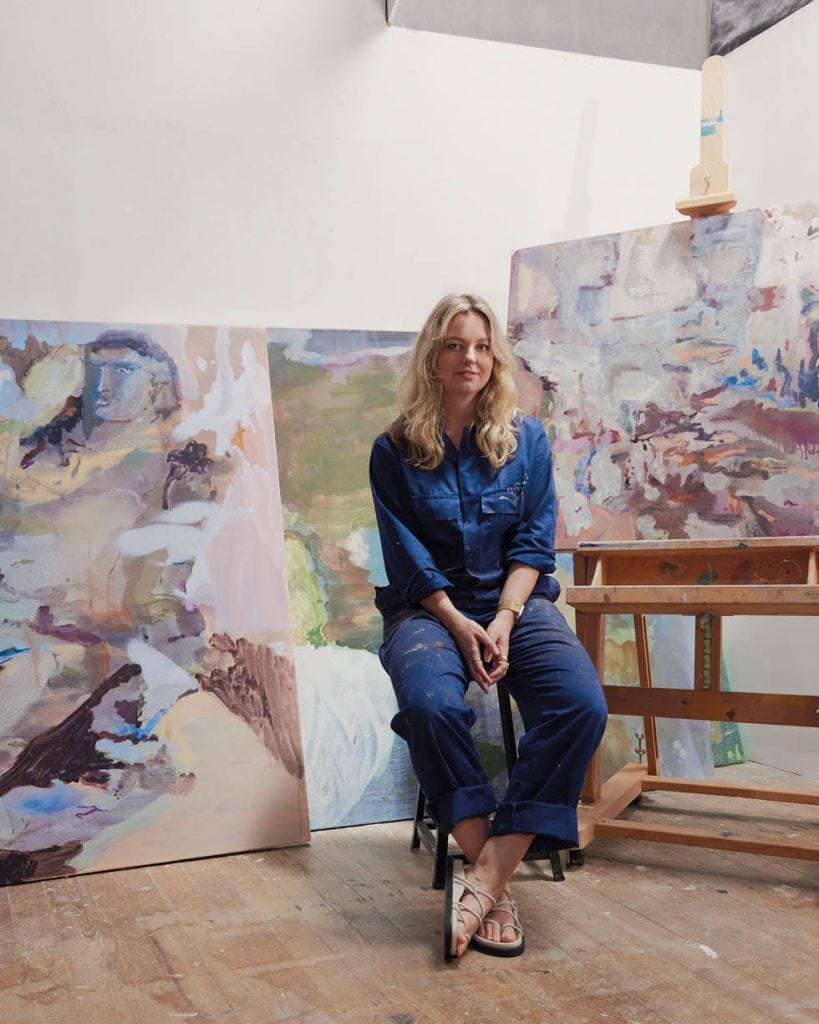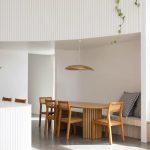If you ask Tāmaki Makaurau/Auckland’s Loren Marks what painting is to her, she’ll describe it as a chaotic blend of exploration, discovery, risk, experimentation, vulnerability, expression, dialogue, balance, harmony, energy and reflection. Some of her earliest memories are of wanting to paint, and she says it’s always felt as if it’s been part of her life in some way. Recently, after a decade spent working full-time as a textile designer in the fashion industry, she established a regular studio practice on the side.
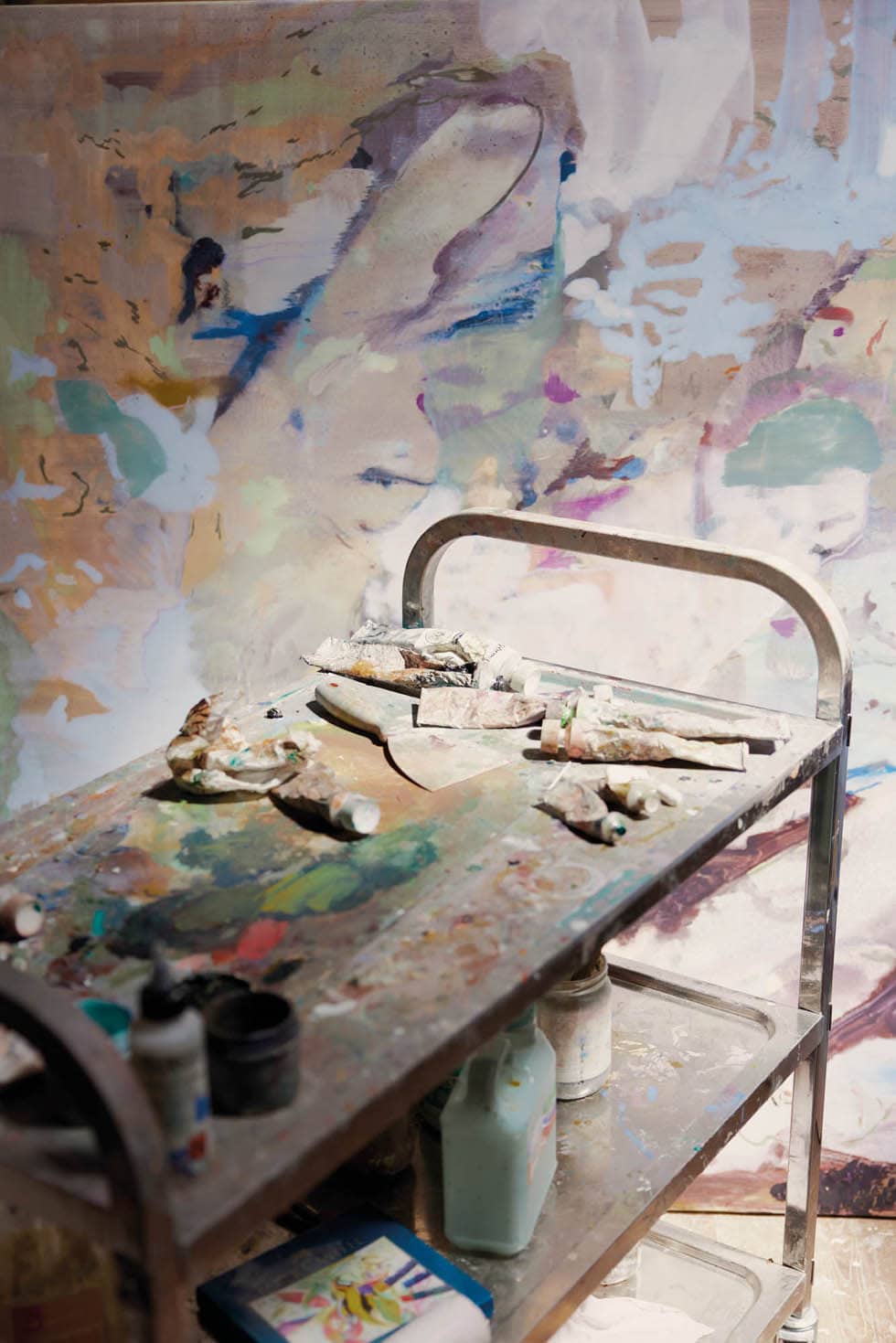
So Loren, how do your various creative outlets feed into each other? I find it incredible how the human mind is able to subconsciously absorb what it sees and reinterpret it as art. I didn’t consciously intend for them to be related, but retrospectively I see how fashion design elements such as rhythm, composition, contrast, scale and the human form intertwine with my painting practice. My years as a designer have helped distil my own visual language. There’s no set outcome for my paintings, which is incredibly freeing but also terrifying. It’s about strategising with myself to make the work and not get too daunted by it, to just begin and keep going.
What themes has your painting been examining lately? My recent work delves into introspection, experimentation, narratives of human relationships and emotional connections — bridging the realms of looking inwards and outwards. I want the paintings to speak in free verse rather than prose.
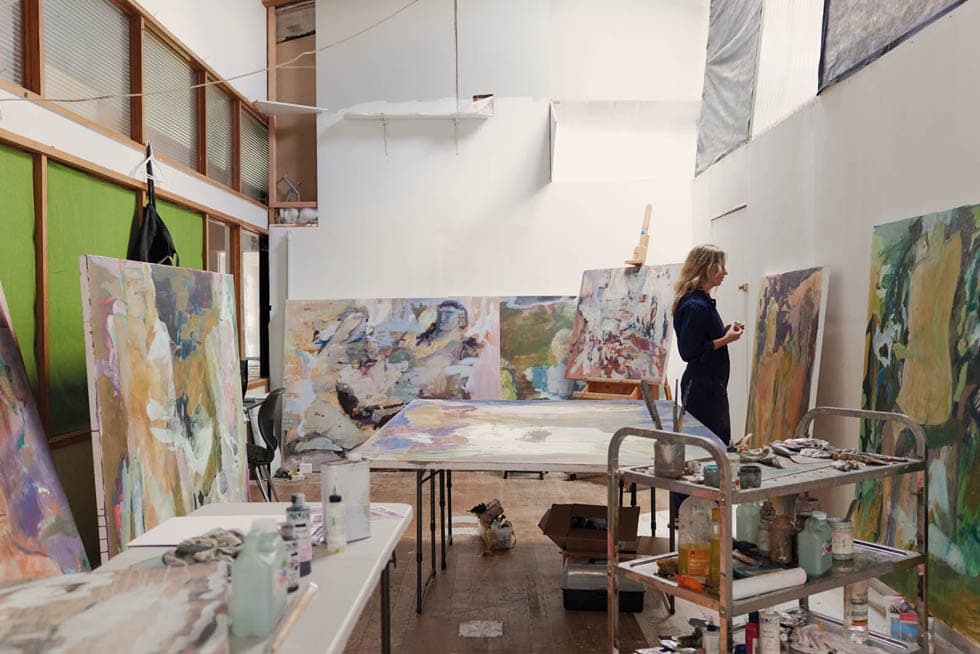
What encouraged these lines of enquiry? The inspiration began during my travels — through encounters I had with artefacts from the ancient world and in art museums — and combined with my experience of living in the vast landscape of Aotearoa, on these isolated islands in the Pacific.
Although abstract, the female form is a recurring theme in these current bodies of work — why? I think all paintings are about the self in some way, and human forms represented in paint are universally alluring. I believe femininity is a powerful energy. The figures that emerge from my paintings are symbolic of deities. I let them come to me as they appear, and try not to force anything.
The way you apply paint has a beautiful fluidity to it — can you tell us a bit about your process? The paint itself serves as both the generator of ideas and the finished piece, guiding the process from concept to completion with an unpredictability. It’s what keeps me coming back to the studio and staying there for hours. I add and remove the medium each time I work on a canvas, each of which has many layers to it.
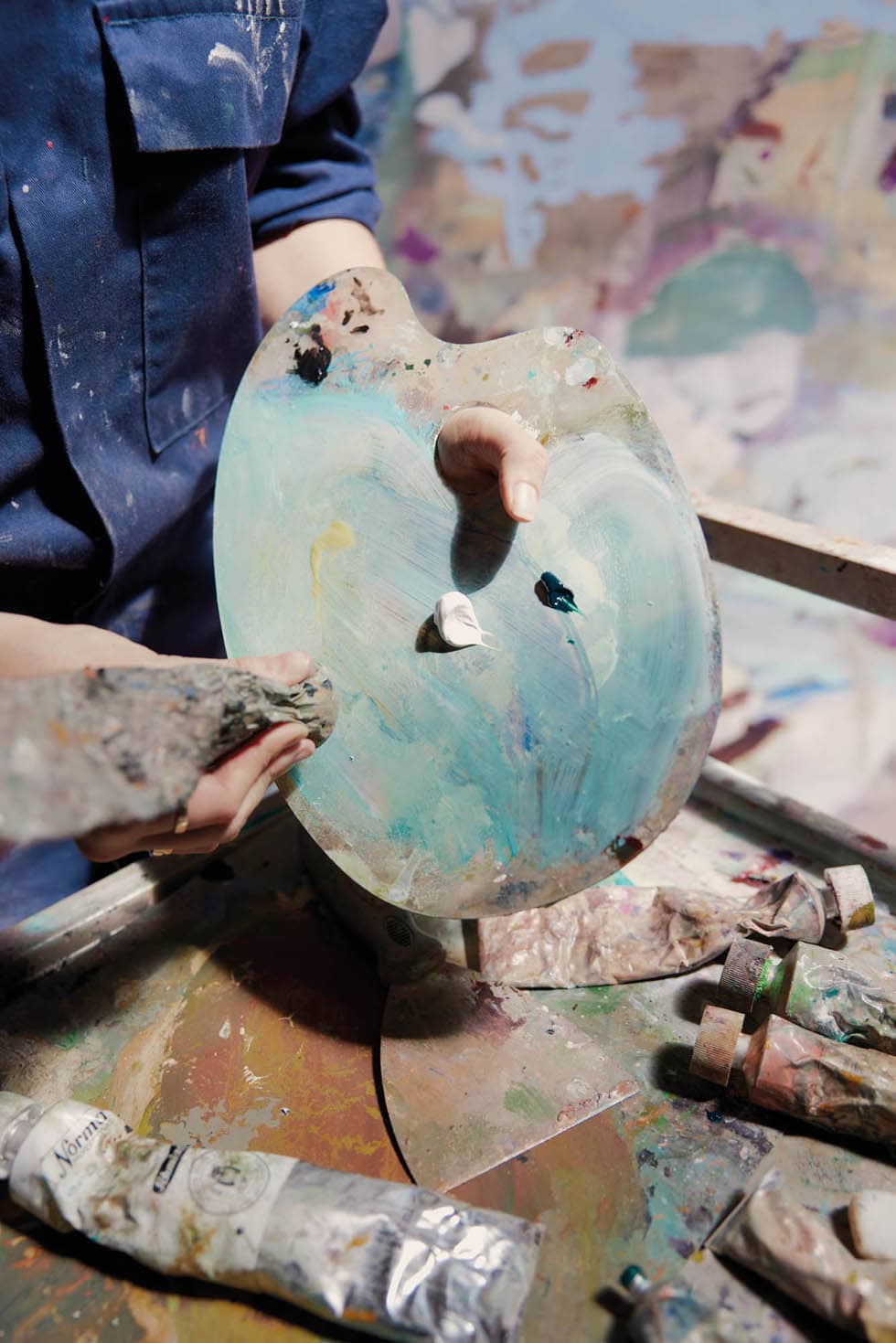
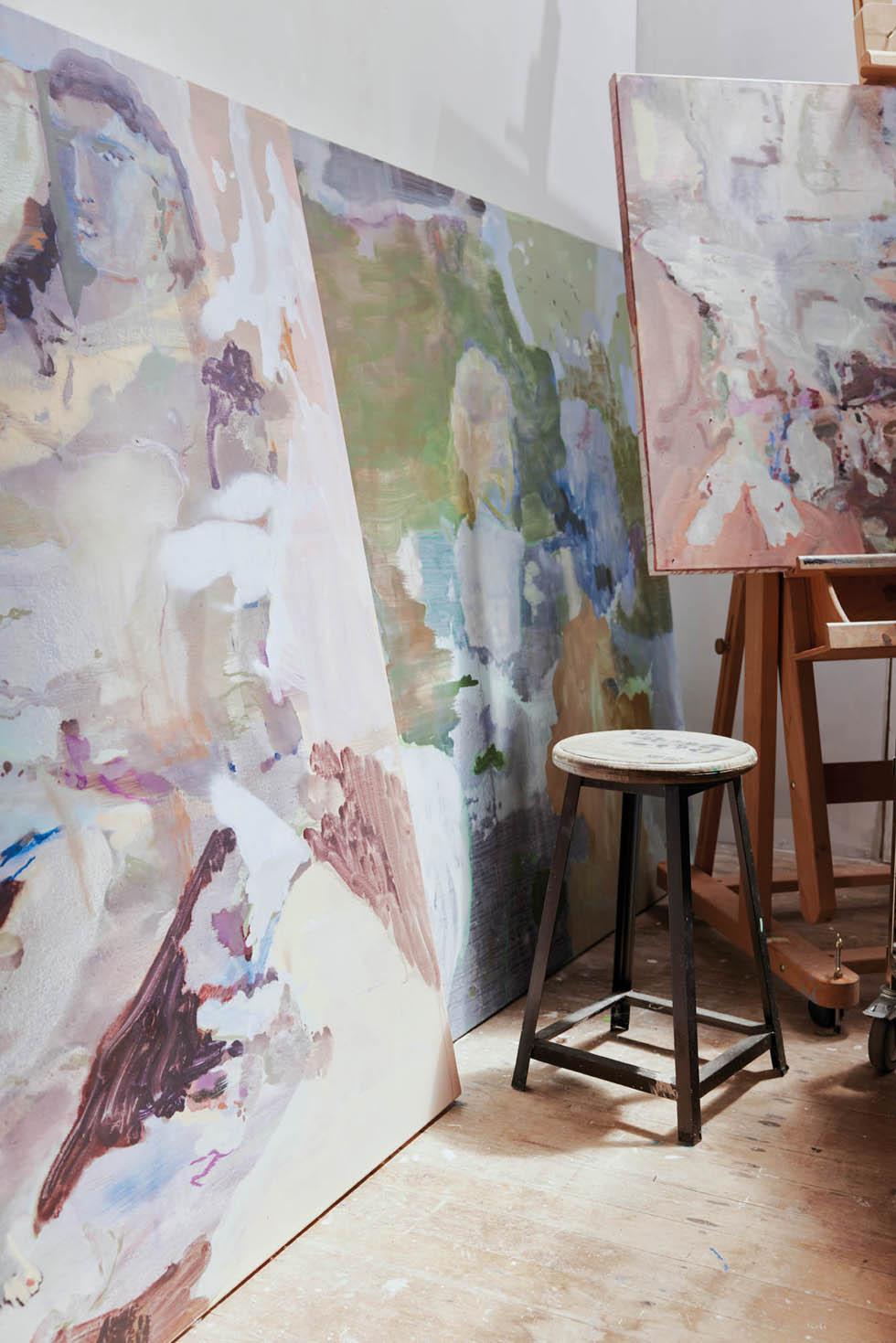
How do you get in the zone? Achieving that focused state in the studio is ritualistic for me. Although it’s a bit of a journey, the drive to my studio is a helpful time for reflection. When I arrive, I begin by putting on my overalls and gloves, and some music or the art podcasts I’m loving — The Good Oil and Talking With Painters. For me, hearing about other art practices acts as a mirror that helps me understand my own work.
Some days, I’m filled with a buzz to dive into making work, whereas on others, I have less enthusiasm. Even on those low-energy days, I consider it progress to sit with the work, clean brushes or rearrange the studio. Interestingly, those quieter days often lead to exciting breakthroughs that wouldn’t have unfolded without them.
You have a show at Sanderson gallery in Newmarket from January 23 to February 8, 2024 — what can we expect to see? This new body of work is a continuation of my last series. I’ve further explored my methods: painting, surface, colour, figuration and narrative. The forms in my work have changed since the previous exhibition, so I’m looking forward to sharing that in this show.
lorenmarks.com
Interview Alice Lines
Photography Holly Sarah Burgess

